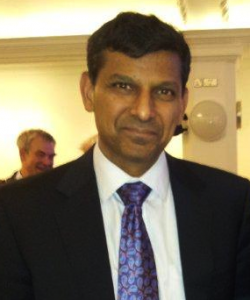Serendipitously, I started reading this week a book that has been sitting in my office for a while, [amazon_link id=”069115743X” target=”_blank” ]The Leaderless Economy: Why the world economic system fell apart and how to fix it[/amazon_link] by Peter Temin and David Vines. Serendipitously because this follows on from just having read Jonathan Fenby’s excellent overview of China, [amazon_link id=”1847394116″ target=”_blank” ]Tiger Head, Snake Tails[/amazon_link], which has a big chunk on China’s global position, and also the forthcoming [amazon_link id=”1907994130″ target=”_blank” ]The BRIC Road to Growth[/amazon_link] by Jim O’Neill.
[amazon_image id=”069115743X” link=”true” target=”_blank” size=”medium” ]The Leaderless Economy: Why the World Economic System Fell Apart and How to Fix It[/amazon_image]
All three raise the question of global economic governance. The word is unappealing, but it’s a vital issue. And Temin and Vines, a distinguished combo of economic historian and international economist, do a very interesting compare and contrast exercise between the 1930s and the present global economic crisis (I’m one of those who thinks it isn’t nearly over yet, despite signs of recovering growth). Others have of course drawn parallels with the 30s, but the focus here is on international governance – and also on the political consequences of an ailing global order. I knew I was going to like the book when the introductory chapter kicked off with David Hume’s price-specie flow mechanism. They write: “The price-specie flow model connects internal and external balances.” The two need to be considered together to find a solution to global disorder, they argue (Michael Pettis, in his excellent [amazon_link id=”0691158681″ target=”_blank” ]The Great Rebalancing[/amazon_link] would agree.) One thing that has changed since Hume’s time is the development of an asymmetric response between prices/wages and output/employment, but even so deflationary pressures are still evident in some countries.
The book characterises the current state of affairs as an ‘end of regime’ crisis, and argues that the resolution will depend on the emergence of a hegemonic country in the global economy, just as the 1930s crisis was not fully resolved until the US took that role. The ‘how to fix it’ of the subtitle is to have some leadership. “Continued neglect of international imbalances will lead to conditions reminiscent of the 1930s and possibly even to military conflicts like those of the 1940s,” they write. Scary thought. They note that it took decades for the switch from Britain to America to occur – from 1918 until the late 1940s really.
I suppose it is true that a single hegemon is necessary to orchestrate the co-operation needed to resolve the interaction of internal and external balances around the world. However, this is a depressing conclusion because my sense from my China reading (and I’m not at all an expert) is that the only candidate is far from ready to step into that role, while America’s decline is increasingly apparent with every news story about its bizarre, internally-obsessive politics – it can’t co-operate with itself, never mind other nations. Like Pettis, Temin and Vines see the economic solution as obvious – an expansion of domestic demand in China and Germany.
“The world …needs both co-operation and a way to make durable bargains among nations. … The absence of an obvious hegemonic leader makes it easy to be pessimistic that such co-operation will not be forthcoming.” Maybe, they suggest, the G20 could get its act together. Jim O’Neill’s [amazon_link id=”1907994130″ target=”_blank” ]The BRIC Road to Growth[/amazon_link] is a bit more optimistic about the scope for leadership to come from the fast-growing large emerging economies but also forsees governance change as likely to be too slow. Temin and Vines are pessimists: “Alas, politics in America and Europe seems to be aimed at repeating the mistakes of the 20th century in the first global crisis of the 21st.” A sobering thought as the 100th anniversary of World War I hoves into view.
I would make all political leaders read this book over the holidays – whether in December or a bit later for Chinese New Year – and hope that it prompts them to make a New Year resolution to show true leadership. A globalized world without global leadership is a pretty terrifying prospect.

